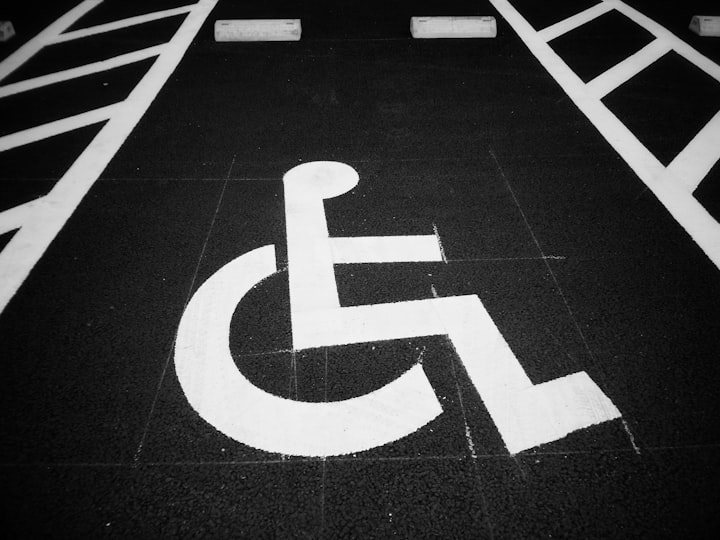The Emergence of AI in Healthcare
Artificial Intelligence (AI) has revolutionized numerous industries, including healthcare

AI has revolutionized numerous industries, including the healthcare industry. Its capacity to process immense amounts of data, recognize patterns, and make autonomous decisions has demonstrated promise for assisting clinical specialists with diagnosis and treatment. The integration of AI into healthcare systems raises intriguing concerns about its decision-making superiority over human experts.
This article seeks to investigate the capabilities of AI in clinical diagnosis, compare its performance to that of human specialists, assess its benefits and drawbacks, probe into ethical considerations, and forecast the future implications of AI in healthcare. By analyzing these factors, we can obtain a thorough understanding of the role of AI in diagnostic healthcare and its effect on patient care.
The Rise of Artificial Intelligence in Healthcare
In numerous industries, including healthcare, Artificial Intelligence (AI) has emerged as a transformative technology. With its ability to process vast amounts of data, recognize patterns, and make autonomous decisions, artificial intelligence has the potential to assist clinical specialists in diagnosis and treatment. The incorporation of AI into healthcare systems raises intriguing concerns about its decision-making ability relative to human specialists.
This article focuses on the capabilities of AI in clinical diagnosis, compares its performance to that of human specialists, evaluates its advantages and disadvantages, explores ethical considerations, and forecasts the future implications of AI in healthcare. By analyzing these factors, we can obtain a comprehensive understanding of AI's role in diagnostic healthcare and its effect on patient care.
2. Understanding AI Diagnosis: How It Works
2.1 AI Techniques and Data Analysis
AI diagnosis relies on algorithms that can process vast volumes of clinical data with exceptional speed and accuracy. These algorithms analyze patient information, including symptoms, medical history, test results, and imaging scans, to identify patterns and relationships that may indicate a specific illness or disease. By continuously learning from new data, AI systems adapt and improve their diagnostic capabilities over time.
2.2 Training and Evaluation of AI Diagnostic Systems
Training AI diagnostic systems involves feeding them vast datasets of labelled clinical information, enabling them to learn and identify patterns indicative of specific diseases. To ensure proper training, medical experts meticulously review and validate these datasets. Once trained, AI models undergo rigorous testing to evaluate their performance against real-world clinical cases, comparing their diagnoses with those of human specialists.
3. AI vs Human Specialists: A Comparative Study
3.1 Accuracy and Utility of AI Diagnosis
Studies have revealed that AI can outperform human specialists in certain areas. AI systems can rapidly and consistently analyze vast amounts of data, potentially detecting subtle patterns that human specialists may overlook. This can lead to more accurate and expedited diagnoses, ultimately enhancing patient outcomes. Additionally, AI diagnosis can alleviate the burden on healthcare workers, allowing them to focus more on patient care and critical guidance.
3.2 Factors Contributing to Human Diagnostic Errors
While human specialists possess essential knowledge and expertise, diagnostic errors can still occur due to various factors. These may include biases, fatigue, time constraints, or limited exposure to rare cases. Furthermore, clinicians may struggle to keep up with the rapid influx of medical research and standards. By augmenting human expertise with AI-powered diagnostics, these limitations can be addressed, potentially reducing diagnostic errors.
4. Advantages of AI Analysis in Healthcare
4.1 Enhanced Speed and Flexibility
One of the key advantages of AI diagnosis is its speed and scalability. AI systems can process large amounts of clinical data in a fraction of the time it would take a human specialist. This not only facilitates faster diagnosis but also enables healthcare workers to handle a greater number of cases, improving overall efficiency in healthcare delivery.
4.2 Consistency and Standardization of Diagnosis
Human diagnostic accuracy may vary due to factors such as experience, knowledge, and personal biases. In contrast, AI provides reliable and consistent results. Once trained and validated, AI systems offer a standardized approach to diagnosis, ensuring that patients receive the same level of care regardless of geographical location or healthcare provider.
4.3 Handling Complex Data and Patterns
Clinical data is becoming increasingly complex with advancements in genetics and medical imaging. AI excels at processing and interpreting such vast data, allowing for the identification of intricate patterns that may not be immediately apparent to human clinicians. By uncovering these hidden connections, AI can facilitate more accurate and personalized treatment strategies.
Overall, AI diagnosis has the potential to transform healthcare by improving accuracy, efficiency, and scalability. While human specialists will always play a crucial role, the synergy between human expertise and AI-powered technologies can enhance diagnostic capabilities and ultimately lead to better patient outcomes. Thus, AI may become a trusted companion for doctors, empowering them to provide even better treatment while enjoying a cup of coffee.
5. Limits and Challenges of AI Diagnosis
5.1 Ethical and Legal Concerns
While AI has the potential to significantly improve medical diagnoses, it also raises important ethical and legal concerns. For instance, who should be held responsible if an AI algorithm makes a flawed diagnosis? How can patient privacy and data security be ensured when personal health information is processed by AI systems? These are complex questions that need to be addressed to ensure the responsible and ethical use of artificial intelligence in healthcare.
5.2 Lack of Human Intuition and Empathy
One of the limitations of AI diagnosis is the absence of human intuition and empathy. Doctors bring years of experience, intuition, and empathy to patient consultations, which greatly contribute to accurate diagnosis and treatment. AI, on the other hand, relies solely on data and algorithms, which may not capture the full complexity of human health and emotions. Therefore, striking a balance between AI's analytical capabilities and the human touch provided by doctors is crucial.
5.3 Dependency on Data Quality and Availability
The accuracy and effectiveness of AI diagnosis heavily depend on the quality and availability of data. AI algorithms require access to large volumes of diverse and accurate clinical data to make reliable judgments. However, there are challenges in ensuring the data used is representative of the population and free from biases. Moreover, in regions with limited healthcare access or inadequate data collection systems, AI diagnoses may not be as effective. Overcoming these challenges is vital to harnessing the full potential of AI in healthcare.
6. Ethical Considerations and Concerns Regarding AI Diagnosis
6.1 Patient Privacy and Data Security
As AI becomes increasingly relied upon for diagnosis, ensuring patient privacy and data security becomes paramount. With AI systems handling sensitive health data, measures must be in place to safeguard patient privacy and ensure data security. Safeguarding against unauthorized access, breaches, and misuse of personal health information.
6.2 Bias and Fairness in AI Algorithms
AI algorithms can inadvertently perpetuate biases if the training data used contain inherent biases or if the algorithms themselves are not designed to be fair. This could lead to disparities in healthcare practices, diagnoses, and treatment recommendations. It is crucial to continuously monitor and address biases in AI algorithms to ensure equitable healthcare outcomes for all patients, regardless of their demographic characteristics.
6.3 Maintaining Human Oversight and Accountability
While AI can assist with diagnosis, it should not replace the role of human specialists. Human oversight and accountability are essential to ensure the quality and reliability of AI-driven diagnoses. Doctors should maintain an active role in the diagnostic process, evaluating and validating the AI-generated recommendations. This collaboration between AI and human specialists can enhance healthcare outcomes and avoid potential pitfalls that may arise from relying solely on AI technologies.
7. The Future of AI in Healthcare: Potential Benefits and Implications
7.1 Augmented Knowledge and Collaboration with Physicians
The future of AI in healthcare lies in its use as a tool for augmenting knowledge. AI can greatly assist doctors by providing them with comprehensive data insights, identifying patterns, and offering recommendations, ultimately enhancing the diagnostic process. Collaboration between AI and physicians can lead to more accurate and efficient decision-making, utilizing the strengths of both humans and machines.
7.2 Impact on Healthcare Delivery and Workforce
The widespread adoption of AI in healthcare has the potential to transform the delivery of healthcare services. AI technologies can streamline administrative tasks, improve efficiency, and reduce medical errors. However, concerns arise regarding the impact on the healthcare workforce. While AI may automate certain tasks, replacing the extensive expertise and empathy provided by human specialists is unlikely. Instead, AI can save doctors' time, allowing them to focus on more complex cases and personalized patient care.
8. The Convergence of AI and Human Specialists in Healthcare
In conclusion, AI has significantly contributed to improving diagnostic accuracy and efficiency in healthcare. However, it is important to acknowledge its limitations and address the ethical concerns associated with its implementation. The future of healthcare lies in the collaborative relationship between AI and human specialists. By integrating AI as a tool for enhanced intelligence and maintaining human oversight, we can harness the potential benefits of AI while preserving the compassion and expertise that human doctors bring to patient care.
8.1 The Conjunction of AI and Human Specialists in Healthcare
In summary, the integration of AI into healthcare systems has demonstrated significant value in enhancing diagnostic accuracy and efficiency. While AI offers advantages such as speed, scalability, and consistency, it also faces limitations and ethical considerations that need to be addressed. It is crucial to recognize that AI should not replace human specialists but rather work in collaboration with them. The future of healthcare lies in the convergence of AI and human specialists, leveraging the strengths of both to improve patient outcomes. As AI continues to evolve, it is essential to strike a balance between technological advancements and maintaining the human touch in healthcare. By embracing the opportunities presented by AI while upholding the principles of patient-centred care, we can truly harness the benefits of this transformative technology to serve all.
About the Creator
Tracey te Braake
I love writing and I want to bring joy to my readers as they lose themselves in my words.
Enjoyed the story? Support the Creator.
Subscribe for free to receive all their stories in your feed. You could also pledge your support or give them a one-off tip, letting them know you appreciate their work.






Comments
There are no comments for this story
Be the first to respond and start the conversation.